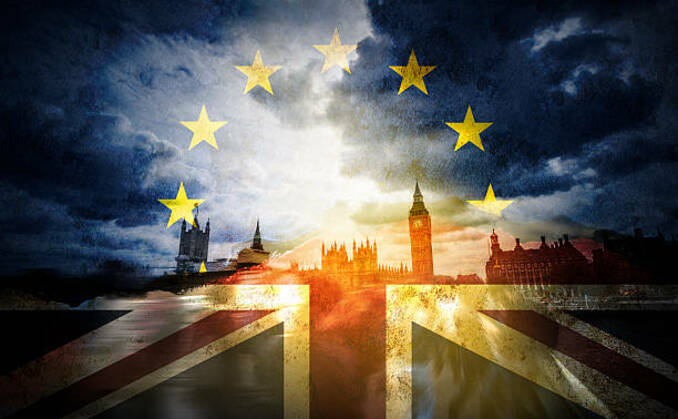
Diverging environmental regulations on either side of the Channel mean bad news for UK exporters
The inevitable is starting to happen. The relief that followed the avoidance of a no deal Brexit, back in the days when Boris Johnson was associated with fibs about buses rather than fibs about parties, always concealed the way the UK-EU trade deal would still result in plenty of new trade barriers.
The agreement promised a degree of broad regulatory and policy alignment on issues such as climate action and environmental hazards, but it also left plenty of room for divergence. For Brexiters, divergence meant sovereignty. But for businesses used to the frictionless trade enabled by the Single Market and Customs Union, divergence meant compliance costs.
Four years on, the predictable and predicted consequences of that deal are starting to be felt.
This reality was highlighted this week by a new report from verification platform Compare Ethics, which calculates how the EU's sweeping Green Deal package of rules and regulations could impact £193bn of UK exports a year.
Again, this should all be obvious. In pursuit of its net zero goals, Brussels has introduced or is in the process of introducing a raft of regulations, such as the Green Claims Directive, the Corporate Sustainability Due Diligence Directive, the Regulation on Deforestation-Free Products, the Ecodesign for Sustainable Products Regulation, the Empowering Consumers for the Green Transition Directive, the Textile Labelling Regulation, and the Waste Shipment regulation. This list is not comprehensive. All these rules impact EU companies, but they also impact companies in third countries exporting to the EU. The UK is now a third country.
Westminster has its own version of many of these regulations, but even if they are only slightly different to their Brussels counterparts it will create compliance requirements at the border.
And then there is the impact of the EU's Carbon Border Adjustment Mechanism (CBAM), which will start to be felt from 2026. The UK may be planning its own CBAM, but it will come a year later and unless something drastic happens to UK carbon prices will be set at a lower level. Companies exporting to the EU will face additional costs as a result.
All of this will be seized on by Brexiters and critics of climate action (many of them the same people) as evidence of Brussels overreach and the cost impact of green policies. But in reality it is an inevitable consequence of the UK's departure from the EU and its decision to opt for an economically self-harming hard Brexit. And it is going to get worse, not better.
Having committed to the Paris Agreement, every country will have to introduce new policies and regulations to help drive the decarbonisation of their economies and manage the clean energy transition. This week's intervention from the new COP Troika calling on all governments to start preparing now for the submission of upgraded national climate action plans, or NDCs in the jargon, at next year's COP30 Climate Summit is a timely reminder of how a new wave of global climate policy is on the way.
These national policies will inevitably differ from country to country, which will in turn create trade friction as governments look to protect their domestic industries and tackle the free rider problem by encouraging their partners to accelerate their own decarbonisation efforts.
Far from entering an era of buccaneering trade liberalisation, as the Brexiters promised, the world is on the cusp of an era of more complex trade barriers and borderline protectionism. One of the most welcome aspects of Shadow Chancellor Rachel Reeves' Mais Lecture this week, was the way she made clear how she understands the way the world has been changed by a combination of climate change and geopolitics.
The only way for businesses to navigate these choppy waters is to lean into them.
As Compare Ethics argued, the EU Green Deal is not going anywhere. It may iterate over time in response to political pressures and new trends, but the bloc is clearly committed to establishing itself as a global hub for robust environmental regulation and sustainable business practices. Other countries will follow suit - witness President Biden's new auto emissions rules this week and Brazil's early commitment to update its own NDC.
The only option for UK businesses looking to export is to accept they are going to have keep track of EU rules that Westminster no longer has any say over, and to comply with them where necessary, often at considerable cost. And in the meantime, it is better to get ahead of inevitable new climate rules and rising carbon prices by investing now in decarbonising their business and embracing environmental best practices.
It turns out Brexit means Brexit was only part of the story. Who knew?
Keep up to date with all the latest green business news by signing up to the free Daily and Weekly BusinessGreen Newsletters.









